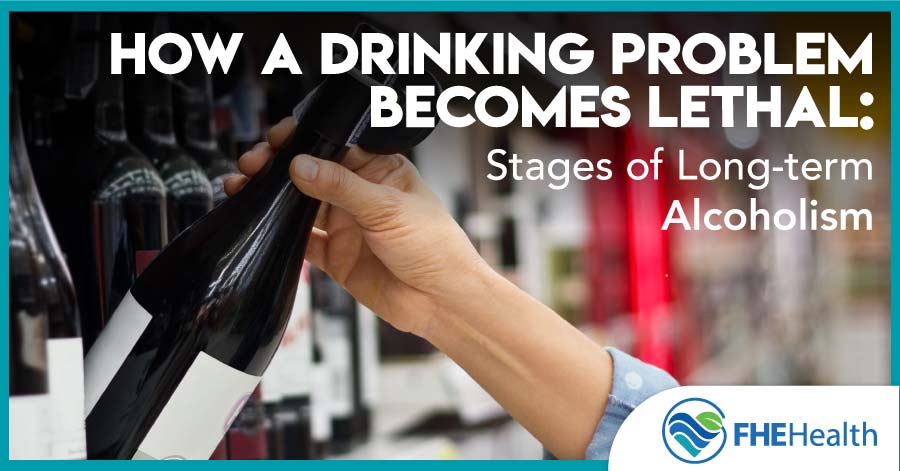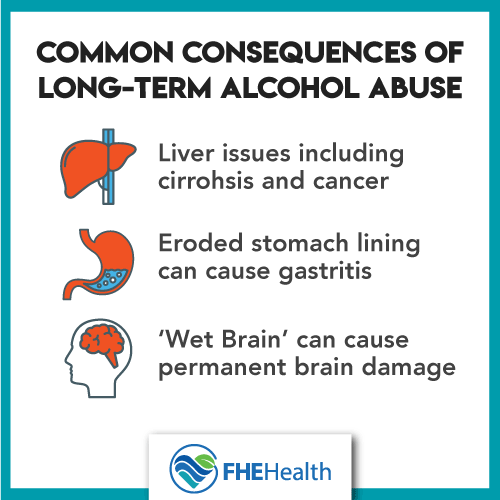
Alcoholism, also known as Alcohol Use Disorder or AUD, is among the leading causes of preventable deaths worldwide. A recent study published in The Lancet concluded that alcoholism among men and women aged 15-49 was the single biggest cause of premature death, and that “alcohol use is a leading risk factor for global disease burden and causes substantial health loss.”
Here in the United States, death rates linked to long-term alcohol abuse are on the rise. The Institute for Health Metrics, University of Washington, compiled an analysis of alcohol-related deaths in the U.S. between 2007 and 2017. Researchers discovered a 35 percent increase in fatalities linked to alcohol during that decade, while the overall national death rate rose by 24 percent.
The study also discovered a disturbing trend: Deaths due to alcohol skyrocketed by 67 percent among women compared to only a 29 percent increase among men. These statistics confirm what many in the addiction field already know. There is no such thing as a “typical” alcoholic, and the long-term effects of alcohol can impact anyone.
What Exactly Is “Long-Term Alcohol Abuse”?
While there is no set definition of what long-term alcohol abuse is, the general consensus among those in the addiction treatment field is that long-term alcohol abuse is an established pattern of behavior that is defined by daily, or near-daily, consumption of alcohol.
Alternatively, someone could be said to be an alcoholic if they regularly drink alcohol to the point of intoxication or even blacking out, despite having days on which they refrain from drinking altogether.
How Does Alcohol Impact Your Body?
 Alcohol is classified as a sedative-hypnotic drug, a substance that depresses the central nervous system, especially when consumed in high doses. This can impact a range of essential functions in your body including your respiratory system, your brain function, and your organs, leading to a slowing of both voluntary and involuntary functions.
Alcohol is classified as a sedative-hypnotic drug, a substance that depresses the central nervous system, especially when consumed in high doses. This can impact a range of essential functions in your body including your respiratory system, your brain function, and your organs, leading to a slowing of both voluntary and involuntary functions.
Because alcohol is orally ingested, it’s processed through your digestive system and liver, leading to rapid absorption into your blood. As this alcohol-rich blood is pumped throughout your body, the alcohol affects every single organ and cell, leading to dramatic changes in how your body functions.
In the short term, alcohol will reach your blood within about 5 to 10 minutes of taking a drink. Blood alcohol levels peak about 30-90 minutes later, and within a few hours, the alcohol will be broken down through metabolism and the liver. In healthy adults, the liver can process about one alcoholic drink per hour. Intoxication occurs when the blood alcohol levels rise faster than the rate at which the liver can metabolize the alcohol.
Because alcohol places a significant strain on the liver, people who suffer from alcohol use disorder often suffer from serious and even deadly liver diseases such as liver cancer and cirrhosis of the liver. This is because long-term alcohol abuse damages the liver, and an estimated one out of every two Americans who have liver disease or end-stage liver failure are either active or recovering alcoholics.
Are There Different Stages of Alcoholism?
 Alcoholism is often ranked on a four-stage scale, ranging from pre-alcoholism to late alcoholism, end-stage alcoholism, and finally, death.
Alcoholism is often ranked on a four-stage scale, ranging from pre-alcoholism to late alcoholism, end-stage alcoholism, and finally, death.
In stage one, your drinking behavior may be what many people consider “normal.” You might have a few drinks with friends, enjoy a couple of beers after work or drink a glass or two of wine with your dinner. What makes this behavior dangerous is the motivation behind your alcohol use. In early stages, if you’re drinking to deal with stress or anxiety and you’re progressively drinking larger amounts of alcohol to get intoxicated, you could be in the pre-alcoholic stage.
Stage two is triggered when you experience your first alcohol-related blackout. At this point, you have likely started to lie about your alcohol use, and you take steps to conceal your drinking from friends, family and coworkers.
Once you have reached stage three, you’ll no longer be able to hide your alcohol abuse. Changes in the way you look, act and deal with everyday life will be obvious to those around you. Chances are good you’ll find yourself constantly thinking about alcohol. You will experience the physical effects of alcoholism like weight gain or loss, stomach bloating, alcohol withdrawal headaches and shakiness, particularly when you’re craving a drink.
Stage four, also known as end-stage alcoholism, is when serious health conditions like cirrhosis of the liver, high blood pressure and alcohol-related dementia can develop. You drink every day, and everything in your life now revolves around alcohol. You will likely lose your job, you’ll have interactions with the police due to your binge drinking, and your relationships with your loved ones may be fractured.
Some addictions experts also refer to the fifth or final stage of alcoholism: death. The reality of alcohol abuse is that when left untreated, alcoholism is deadly.
What Are The Most Common Heavy Drinking Side Effects?
While the way alcohol impacts your body varies based on your weight, age, gender and genetic factors, end-stage alcoholism is often characterized by multiple health problems.
The most common health issues associated with end-stage alcoholism include:
- Cardiomyopathy, in which your heart becomes overextended and unable to pump blood through your body the way a healthy heart can
- High blood pressure
- Irregular heartbeat (arrhythmia)
- Fatty liver (steatosis)
- Alcohol-related hepatitis
- Pancreatitis and pancreatic cancer
- Delirium and/or dementia
- Severe alcohol-induced Parkinson’s disease (uncontrollable shaking)
- Fecal and urinary incontinence
- Memory loss
- Cognitive impairment
- Speech impairment
- Obesity
A number of cancers are also linked to long-term alcohol abuse, including head and neck cancer, breast cancer, colorectal cancer and liver cancer.
Why Is End-Stage Alcoholism Deadly?
 Chronic alcohol disorder, meaning excessive alcohol consumption, can literally take years off of your life. On average, end-stage alcoholics have their lives shortened by 30 years due to the diseases that are directly linked to their drinking.
Chronic alcohol disorder, meaning excessive alcohol consumption, can literally take years off of your life. On average, end-stage alcoholics have their lives shortened by 30 years due to the diseases that are directly linked to their drinking.
In the United States, Americans can expect to live to 78.6 years, while those with untreated end-stage alcoholism have an average life expectancy of 48 years. Alcohol use disorder kills 1 out of every 10 adults aged 20-64, making alcoholism more deadly than automobile crashes, opioid abuse and gun violence combined.
Unlike an opioid overdose death that can happen in a matter of minutes, dying from end-stage alcoholism is usually slow, painful and undignified. There’s often a notable lack of compassion for people who are dying from alcohol use disorder among caregivers, family members and the general public.
And although societal attitudes towards alcoholism are shifting, there is still a great deal of stigma associated with alcohol-induced diseases like cirrhosis of the liver, which impacts up to 20 percent of heavy drinkers. Currently, the only known treatment for end-stage liver failure is liver transplantation.
Without treatment, end-stage alcoholics are likely to suffer from a combination of symptoms including internal bleeding, spikes in their body temperature, swelling of the legs (edema), and jaundice (yellowing of the skin). Men often experience erectile dysfunction and testicular atrophy, while women can have painful swelling in one or both breasts. Death is usually caused by a combination of internal bleeding and a buildup of toxins within the body and can include seizures and/or cardiac arrest.
Despite the fact that about half of all patients with liver cirrhosis are alcoholics, only 21 percent of the liver transplants performed in the U.S. are done on patients with alcoholic liver disease. While medical professionals generally agree that alcoholism is a disease, many doctors remain reluctant to advocate for liver transplants for alcoholics for two reasons: They are concerned about the high relapse rates among end-stage alcoholics, and there is a fear that public support for organ transplantation could be undermined.
Can End-Stage Alcoholism Be Treated?
Yes.
Despite the grim prognosis for people who have suffered from long-term alcoholism, there is hope. With the right medical support and addiction treatment, it’s possible to both prevent further alcohol-related health problems and reduce the risks associated with end-stage alcoholism.
Here at FHE Health, we have the skills, experience and expertise needed to help you get sober, no matter what stage of alcoholism you’re in. Our team of addiction medicine specialists, counselors, and treatment experts are committed to supporting you through every step of your recovery from detox right through to aftercare.
Don’t try to tackle end-stage alcoholism alone. Contact us today to learn how we can help you get well.






